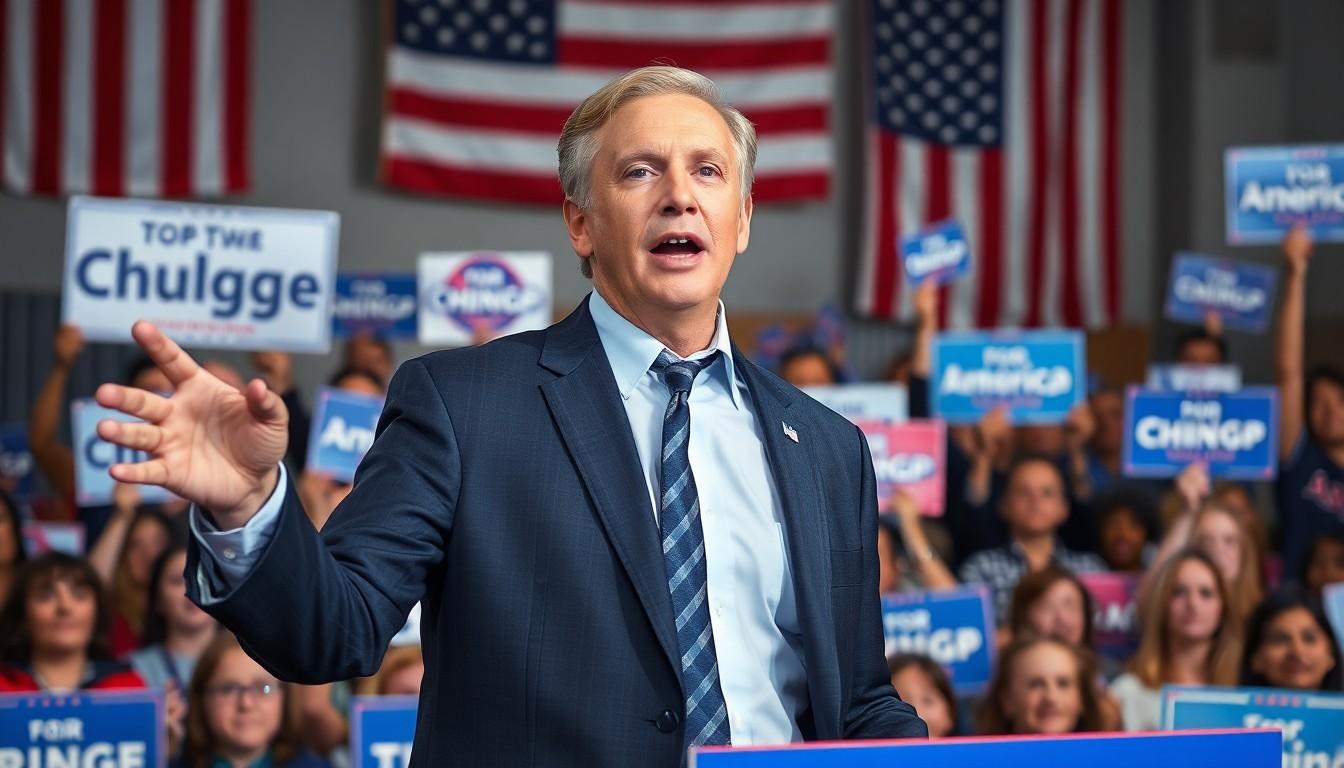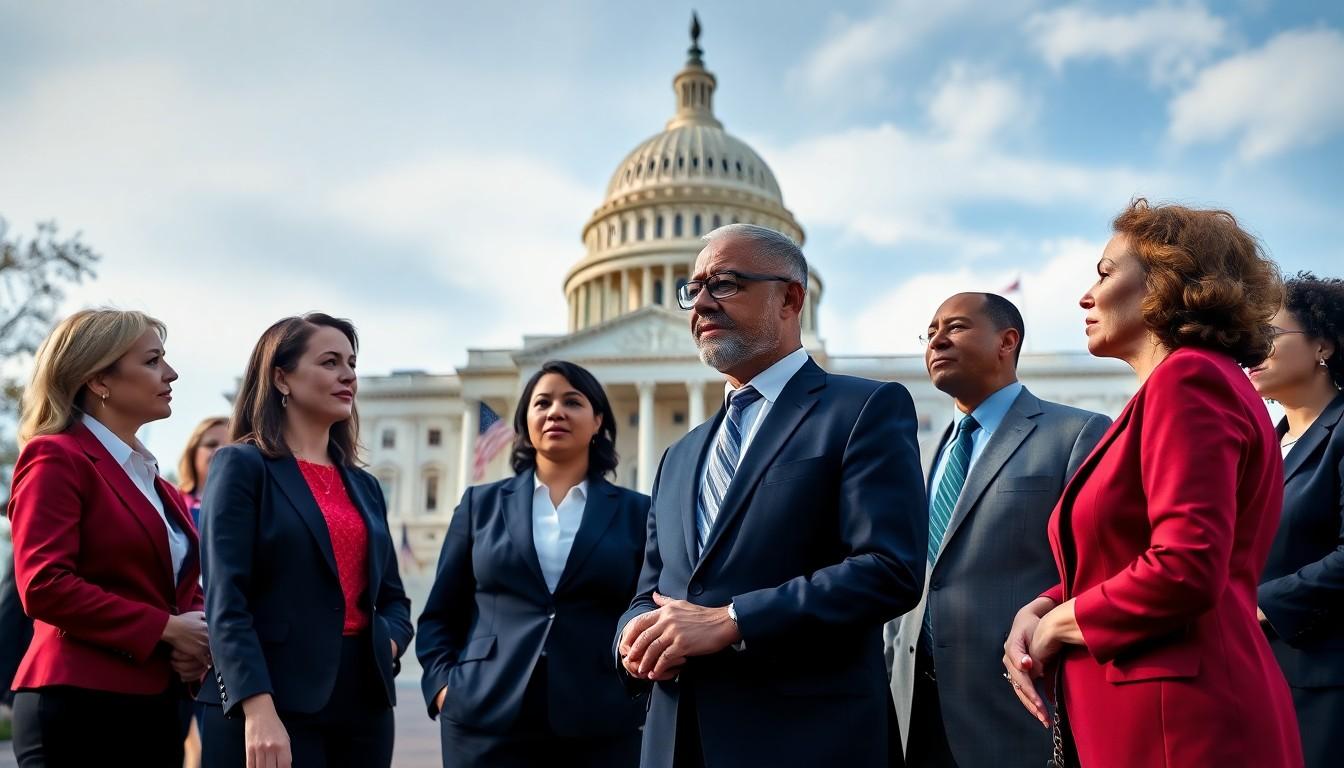The Best Fluffy Pancakes recipe you will fall in love with. Full of tips and tricks to help you make the best pancakes.

What Is Hard Money in Politics? Discover How It Shapes Elections and Campaigns
In the wild world of politics, money talks—and sometimes it shouts. Enter hard money, the cash that flows directly from individuals or political action committees to candidates, with strict rules and limits. Think of it as the well-behaved sibling of campaign financing, always following the rules while still trying to make a splash.
What Is Hard Money in Politics
Hard money refers to direct contributions made by individuals or political action committees (PACs) to political candidates. It operates within a framework of strict regulations set by the Federal Election Commission (FEC). Transparency plays a significant role in hard money contributions since all donations must be reported and publicly disclosed.
Contribution limits apply to hard money. For the 2023-2024 election cycle, individuals can donate up to $3,300 per candidate per election, with PACs facing similar restrictions on their contributions. Such limitations aim to prevent excessive influence from wealthy donors while promoting fairness in the electoral process.
Candidates typically utilize hard money for campaign expenses, such as advertisements, staff salaries, and various operational costs. Often, the predictable nature of hard money allows campaigns to plan finances with greater certainty, as these funds are assured and regulated.
The emphasis on compliance separates hard money from soft money, which entails unregulated donations that often go to political parties rather than candidates. Such a distinction highlights how hard money adheres to the legal framework, ensuring electoral integrity while facilitating essential campaign funding.
Hard money serves as a vital component of political financing, embodying accountability and regulation. The structured environment in which hard money operates allows candidates to raise funds transparently, ultimately influencing the political landscape responsibly.
The History of Hard Money

Hard money has deep roots in political financing, shaped by various pieces of legislation and pivotal court cases.
Key Legislation
The Bipartisan Campaign Reform Act (BCRA), enacted in 2002, marked a significant turning point for hard money regulations. This legislation aimed to eliminate soft money contributions, reinforcing the importance of accountability. It established strict limits on contributions from individuals and PACs, promoting transparency in campaign financing. The Federal Election Commission (FEC) oversees these regulations to ensure compliance. For instance, it defines contribution limits and mandates detailed reporting of donations. The 1974 Federal Election Campaign Act (FECA) originally set the groundwork, but the BCRA enhanced these rules by closing loopholes.
Landmark Court Cases
Several landmark court cases influenced the framework of hard money in politics. In Buckley v. Valeo (1976), the Supreme Court ruled that limits on individual contributions to candidates were constitutional. This decision affirmed the government’s interest in reducing corruption while recognizing political contributions as a form of protected speech. The Citizens United v. FEC (2010) case further transformed the landscape, lifting restrictions on independent expenditures by corporations and unions. While this ruling allowed for greater financial influence, it did not alter hard money contribution limits. Collectively, these cases established a complex legal environment, balancing free speech and the integrity of political financing.
Hard Money vs. Soft Money
Hard money and soft money serve distinct roles in political financing. Understanding these differences is essential for grasping each category’s implications in the electoral process.
Differences Explained
Hard money contributions are directly given to individual candidates and adhere to set limits, promoting transparency. Soft money, on the other hand, involves unregulated donations to political parties that aren’t directly linked to candidates. Individuals contribute up to $3,300 per candidate for hard money, while soft money lacks specific limits, allowing funds to flow more freely. This fundamental difference affects how campaigns are financed and the level of accountability candidates sustain throughout their elections.
Regulatory Framework
The Federal Election Commission (FEC) establishes strict regulations governing hard money contributions, ensuring ongoing compliance. Reporting requirements exist for all contributions, providing public access to donation information. In contrast, soft money contributions face less regulatory oversight, often escaping the same levels of scrutiny. The Bipartisan Campaign Reform Act of 2002 played an instrumental role by banning soft money contributions to candidates, thus reinforcing accountability. Landmark cases, such as Citizens United v. FEC, further shaped the legal foundation, emphasizing the importance of transparency in hard money while navigating free speech concerns in political financing.
The Impact of Hard Money on Elections
Hard money significantly shapes the electoral landscape through regulated contributions and strategic campaign funding. Its structure encourages accountability, ensuring that donors and candidates operate transparently.
Contributions and Campaign Funding
Hard money serves as a primary source of campaign funding for candidates. Individuals may contribute up to $3,300 per candidate per election, allowing candidates to secure necessary resources. Political action committees often mirror these limits, emphasizing structured financial relationships. Campaigns allocate hard money for essential expenses like advertisements, travel, and staff salaries. Candidates can deliver a consistent message to voters due to predictable funding streams. Transparent reporting mandates further enhance accountability, with all donations disclosed publicly. Such regulations also inspire public confidence in the electoral process.
Influence on Political Outcomes
Hard money plays a critical role in influencing political outcomes. Candidates with robust hard money fundraising efforts often gain visibility and traction in their respective races. Financial support can directly impact a candidate’s ability to communicate with constituents and promote their policies. Increased funding leads to more extensive advertising campaigns and outreach programs, fostering greater voter engagement. Additionally, well-funded candidates may have an edge over opponents lacking similar resources. The correlation between fundraising success and electoral victories underscores hard money’s influence on political dynamics.
Hard money in politics serves as a cornerstone for campaign financing. Its strict regulations ensure transparency and accountability, fostering trust in the electoral process. By limiting contributions from individuals and PACs, hard money helps mitigate the influence of wealth in politics while providing candidates with essential resources for their campaigns.
The evolution of hard money regulations reflects a commitment to maintaining electoral integrity. As candidates navigate the complexities of fundraising, understanding the role of hard money becomes crucial for both political players and voters. Ultimately, hard money not only shapes the financial landscape of elections but also reinforces the principles of fairness and transparency in democratic processes.
